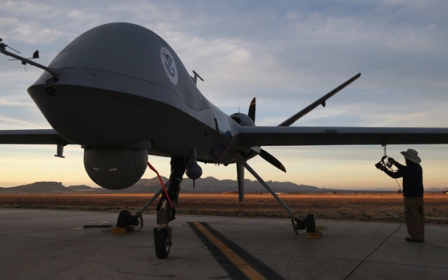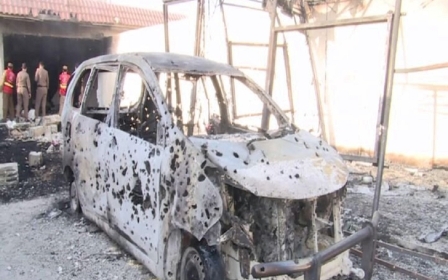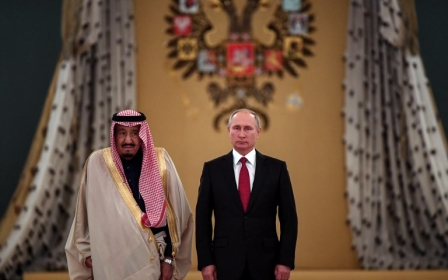UN blacklists Saudi-led coalition for killing children in Yemen
The United Nations on Thursday added the Saudi Arabia-led coalition to a blacklist of parties committing grave violations against children and said it was responsible for killing and injuring hundreds of children in the past year during its campaign in Yemen.
Houthi rebels, pro-government forces and al-Qaeda in the Arabian Peninsula also featured on the annual list which is part of the UN secretary-general's annual report on children in armed conflict, although all of those had been included in the previous year's report.
The report said the coalition, which is backing government forces loyal to President Abd Rabbuh Mansour Hadi with air strikes and ground troops in their battle with the Houthis, was responsible for killing and injuring 683 children and attacking dozens of schools and hospitals in 2016, but noted the coalition has taken action to improve child protection.
In the reporting period, air strikes were the cause of over half of all child casualties, with at least 349 children killed and 334 injured.
The Houthis and their affiliated forces were responsible for 414 child casualties, the report said.
Saudi Arabia on Friday rejected the as "inaccurate and misleading."
"We exercise the maximum degree of care and precaution to avoid civilian harm," Saudi UN Ambassador Abdallah Al-Mouallimi told reporters at the United Nations.
Meanwhile, Amnesty International (AI) said the report showed that the international community has caved in to political pressure again, underplaying the suffering of hundreds of Yemeni children, by watering down criticism of the Saudi Arabia-led coalition’s grave violations of international law.
“Every time the United Nations makes concessions that allow perpetrators of crimes under international law to evade criticism or justice, it emboldens others to commit violations that cause immense misery to people around the world,” said Sherine Tadros, Head of UN office in New York for Amnesty International in a statement on the AI website.
“While we welcome the overdue listing of the Saudi Arabia-led coalition in the CAAC report, it is a shame that the UN caved in to pressure and included it in a new category specifically designed to limit condemnation of the coalition.”
Debra Jones, director and United Nations representative for Save the Children, called on all parties to take note of the report and to take measures to protect children from harm.
“Every party fighting in Yemen has failed to respect international law, and continues to do so," Jones said. "Even as Yemen faces famine and disease, they continue to be bombed in their homes, schools and forced to fight on the front lines.
“This report identifies the darkest crimes against children in conflict. All parties in Yemen must sit up and take notice and take action, as must those countries that are supporting or arming them. The world must make sure the violations end.”
The Saudi-led coalition was briefly added to the blacklist last year and then removed by then-UN chief Ban Ki-moon pending review.
At the time, Ban accused Saudi Arabia of exerting "unacceptable" undue pressure after sources told the Reuters news agency that Riyadh threatened to cut some UN funding. Saudi Arabia denied threatening Ban.
In an effort to dampen controversy surrounding the report, the blacklist this year is split into two categories. One lists parties that have put in place measures to protect children, which includes the Saudi-led military coalition, and the other includes parties that have not.
The report, which was produced by UN children and armed conflict envoy Virginia Gamba and issued in Secretary-General Antonio Guterres's name, does not subject those listed to UN action, but rather shames parties to conflicts in the hope of pushing them to implement measures to protect children.
Yemen has been devastated by more than two years of civil war, with the Houthi rebels still controlling much of northern Yemen and the country's capital, Sanaa.
More than 10,000 people have been killed and the conflict has ruined the economy and pushed millions to the brink of famine, while a cholera epidemic has killed more than 2,000.
New MEE newsletter: Jerusalem Dispatch
Sign up to get the latest insights and analysis on Israel-Palestine, alongside Turkey Unpacked and other MEE newsletters
Middle East Eye delivers independent and unrivalled coverage and analysis of the Middle East, North Africa and beyond. To learn more about republishing this content and the associated fees, please fill out this form. More about MEE can be found here.




